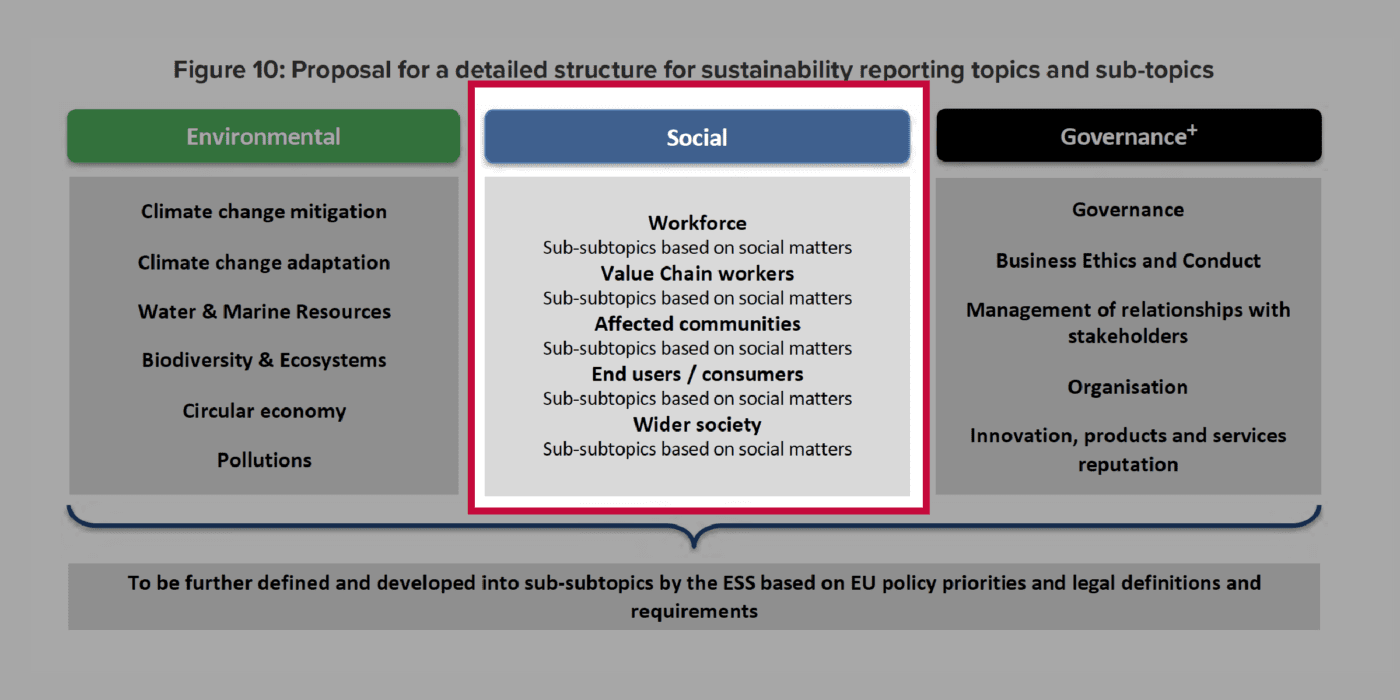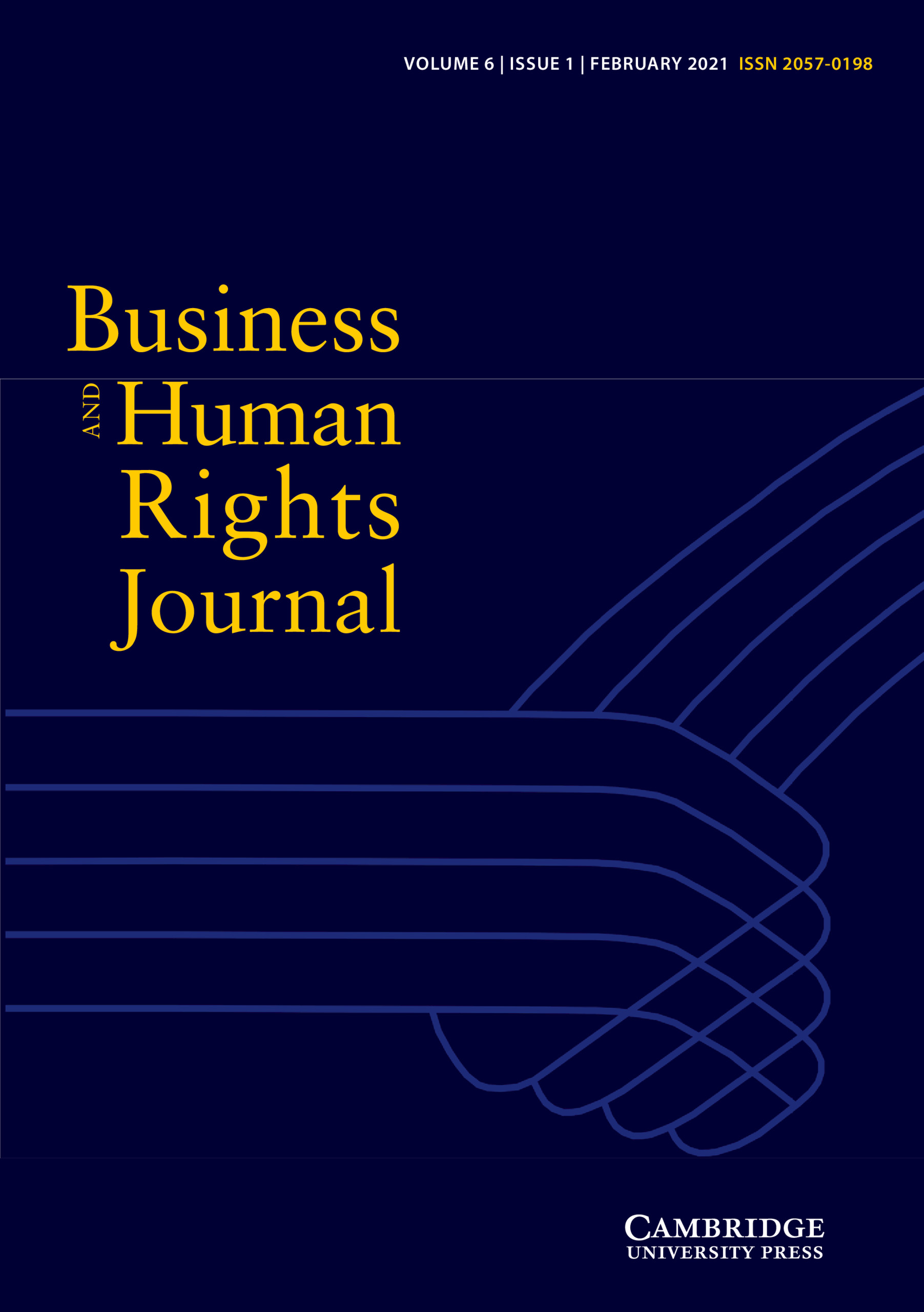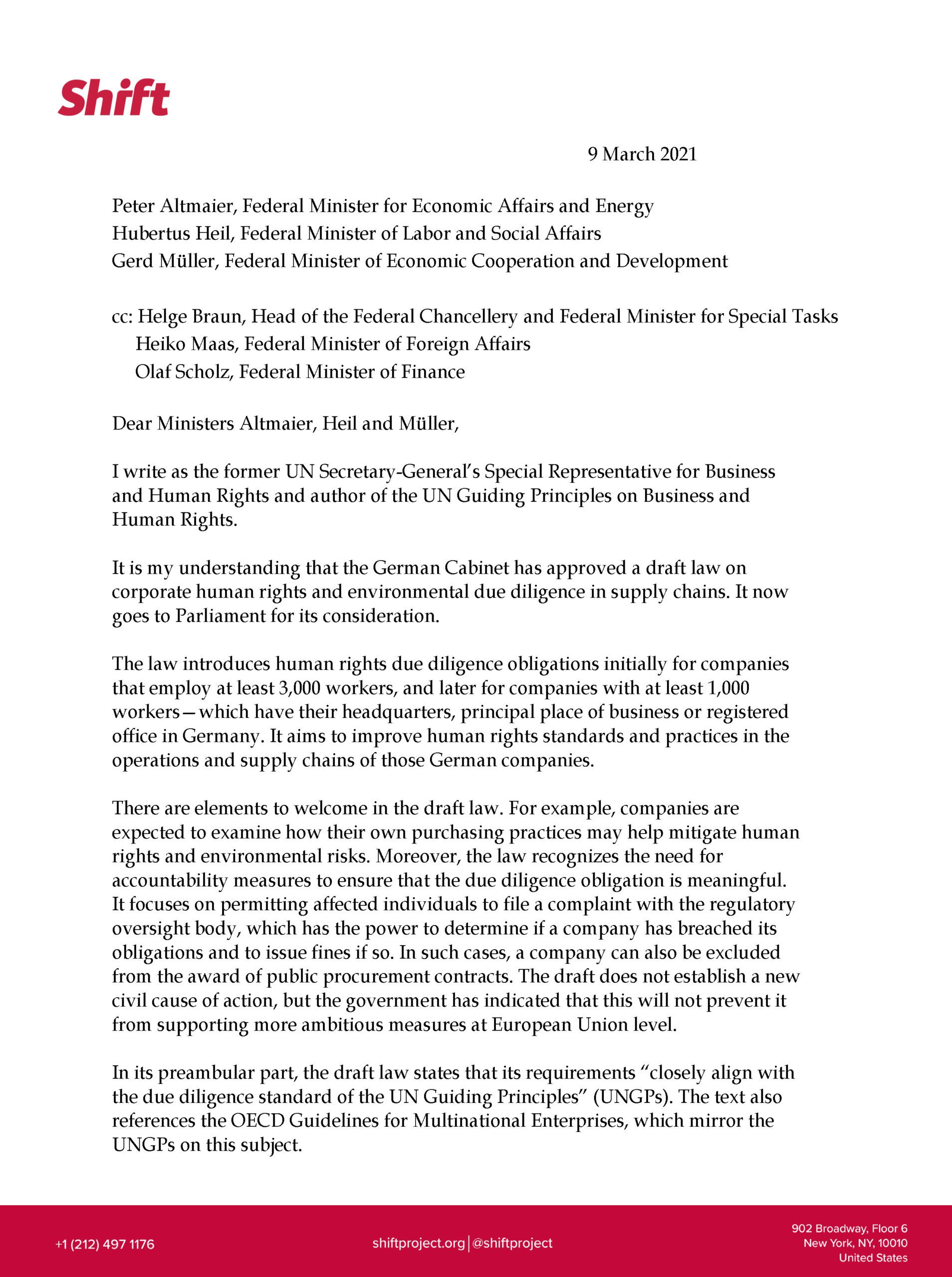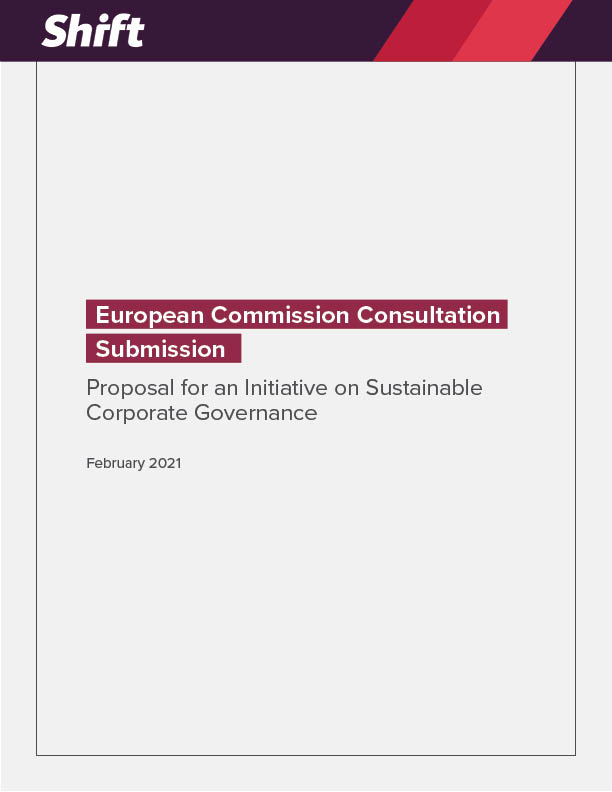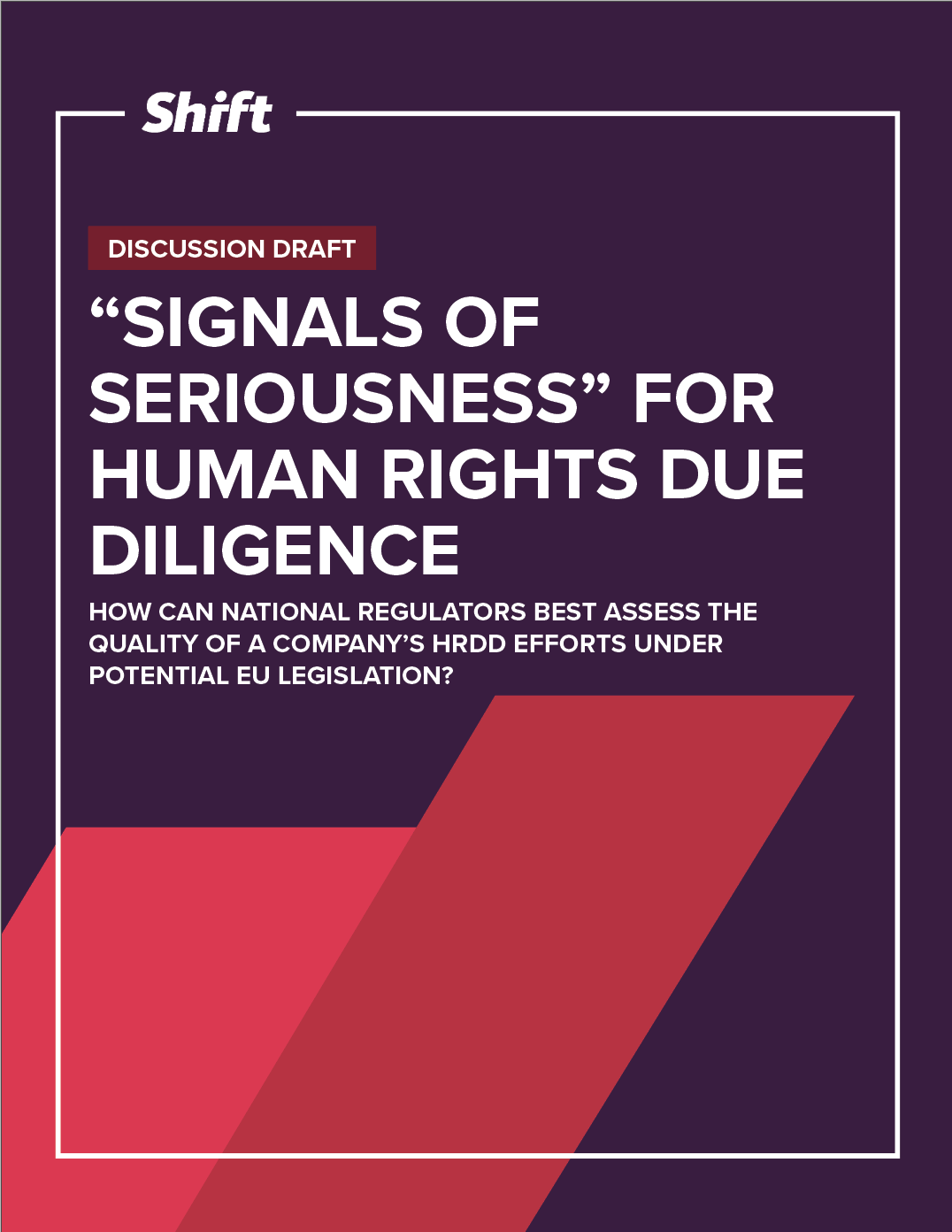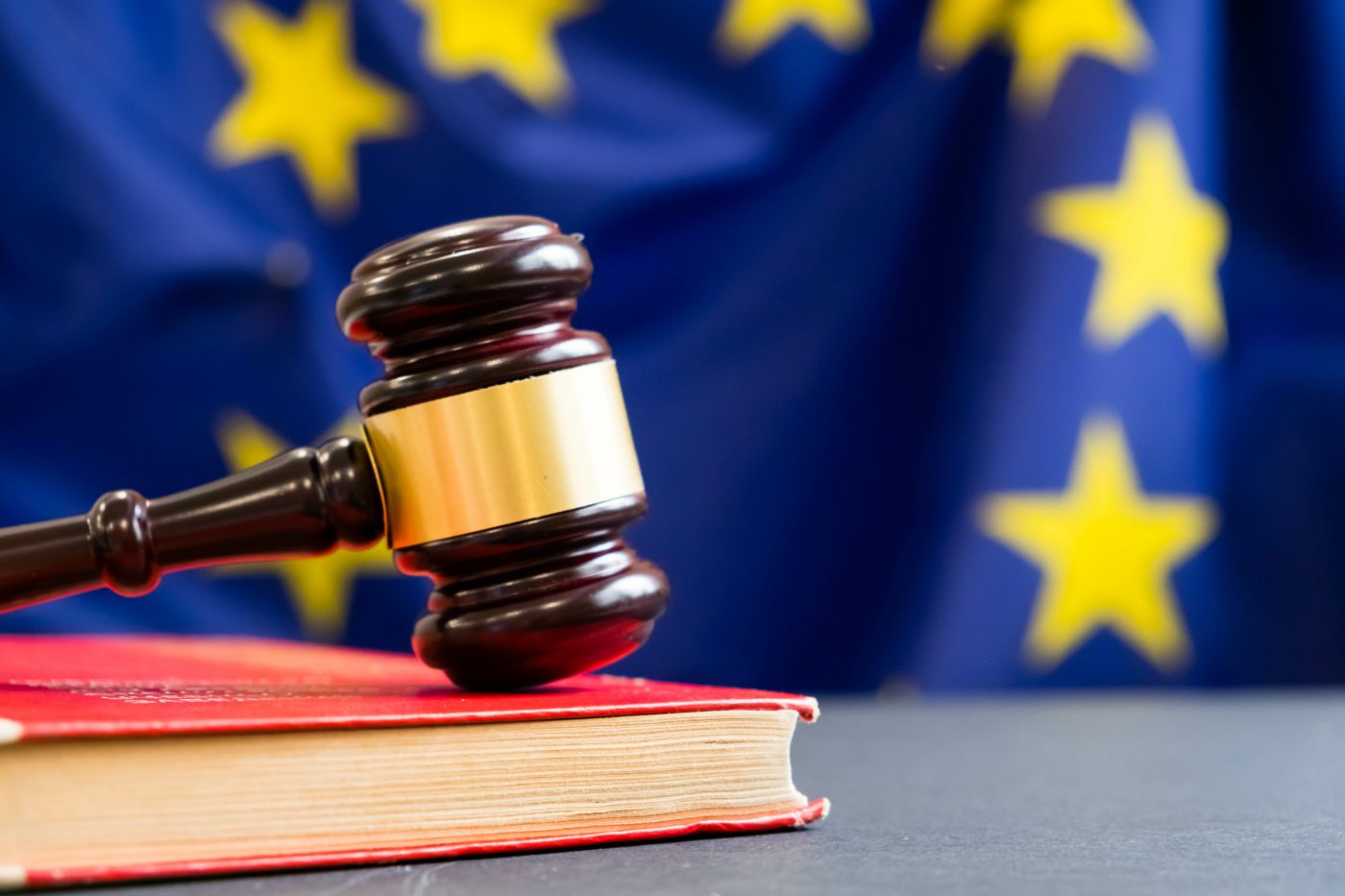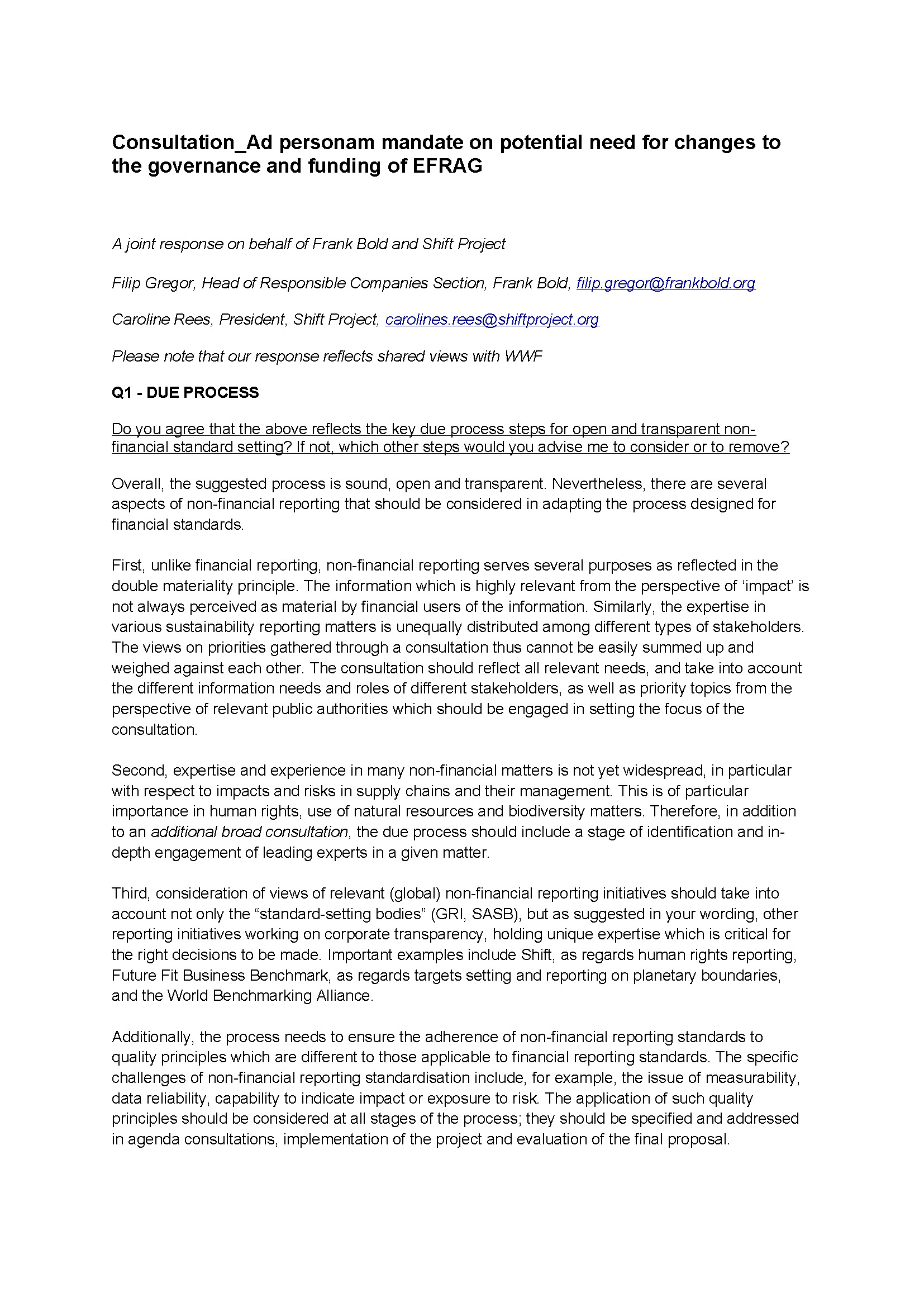As the move towards mandatory due diligence measures gathers pace in Europe there are many important points being debated about how best to turn the expectations in the UN Guiding Principles on Business and Human Rights (UNGPs) into a binding corporate duty. An important point of contention concerns the relationship between requiring companies to carry out human rights due diligence (HRDD) processes and the outcome of those efforts in human rights terms.
HRDD is often characterized as an ‘obligation of means’ – meaning that it is the quality of the process that matters. This is often contrasted with an ‘obligation of result’ – meaning that it is whether or not you achieve a particular outcome that matters. Treating this as a strict binary, some stakeholders assert that results are therefore never relevant to an assessment of the quality of a company’s due diligence. Meanwhile, others argue that results should be definitive in such assessments. At Shift, we are committed to helping advance a constructive discussion about mandatory HRDD. We think both positions miss some critical nuance in how due diligence-based standards of conduct typically function in practice, and in how the concept of due diligence is used in the UNGPs. This matters if we want to ensure that new legislation is going to be as effective as possible.
The responsibility to respect human rights is a standard of conduct – a level of behavior that we expect companies to meet, reasonably adapted to the specific human rights risks connected to their operations and value chain relationships. The intent of this standard is to prevent and address harms to people; due diligence is the means through which the UNGPs expect companies to achieve that objective (as stated in the commentary to Guiding Principle 15 ( Business enterprises need to know and show that they respect human rights. They cannot do so unless they have certain policies and processes in place. Principles 16 to 24 elaborate further on these. ) ).
The UNGPs adopt a common sense understanding of the term due diligence and connect it to the objective of preventing and addressing harm. As the definition in OHCHR’s Interpretive Guide states:
Due diligence has been defined as “such a measure of prudence, activity, or assiduity, as is properly to be expected from, and ordinarily exercised by, a reasonable and prudent [person] under the particular circumstances; not measured by any absolute standard, but depending on the relative facts of the special case.” In the context of the Guiding Principles, human rights due diligence comprises an ongoing management process that a reasonable and prudent enterprise needs to undertake … to meet its responsibility to respect human rights.
In other words, HRDD is not just a set of processes disconnected from outcomes: HRDD aims to avoid specific harms and should be appropriately adapted to that task. It may not always succeed in doing so (as discussed further below), but that is its objective. It follows that the outcomes of due diligence will always be a relevant factor in assessing the reasonableness or adequacy of due diligence in any particular case.
This means that any legal definition of a new corporate duty should logically start with what the standard of expected behavior is intended to achieve – respect for human rights – and make clear that due diligence is the means through which that expectation should be met. It should also make clear that the ‘outcomes’ (or results) of human rights due diligence that are relevant are the outcomes for people. Developing a policy commitment is not a ‘result’ in and of itself, nor are carrying out audits or conducting training for staff. The fact that they may be more easily measurable should not lead to confusion about what they actually demonstrate. They are activities that can indicate that a company is seeking to meet the standard of conduct, but they are not, without more, evidence of outcomes for people.
In our work at Shift to support the development of effective due diligence requirements, we have found it helpful to highlight two ways in which the outcomes of HRDD are relevant to assessing the reasonableness of a company’s efforts. The first is about outcomes in a specific case; the second is about outcomes over time.
First, there are many legal standards that involve assessing the ‘reasonableness’ of a person’s conduct relative to a particular risk by considering both the objective of the standard and how a person seeks to meet it in practice. For example, consider how we would assess whether a person met the standard of ‘driving safely’ in a specific case. We would of course consider how a person drove the car, but our assessment of whether they were indeed driving ‘safely’ would not only depend on whether they checked their mirrors, stopped at red lights and wore their seatbelt, but also whether they had any accidents or broke the speed limit. In other words, we would consider both how they drove and the outcomes of their driving. If they had an accident, and we were trying to determine whether they caused or contributed to it, we would look at the overall quality of how they were driving, as well as any third party or contextual factors, to determine whether they failed to live up to the standard of expected conduct in those specific circumstances.
The second way in which outcomes are relevant concerns the nature of due diligence as an evolving standard of conduct. Legal standards that rely on an assessment of what is ‘reasonable’ behavior are designed to evolve over time; what is considered safe driving today will look different as our understanding of what is more or less effective in preventing road accidents also evolves. This is why tracking the effectiveness of a company’s human rights efforts is a vital step in due diligence: it helps ensure that due diligence is not reduced to endless cycles of the same processes that produce no meaningful change in outcomes for people over time. This is also why Guiding Principle 20
( In order to verify whether adverse human rights impacts are being addressed, business enterprises should track the effectiveness of their response. Tracking should:
(a) Be based on appropriate qualitative and quantitative indicators;
(b) Draw on feedback from both internal and external sources, including affected stakeholders. )
emphasizes the role of feedback from affected stakeholders, because a company’s understanding of the effectiveness of its due diligence efforts needs to be informed by the perspectives of those who are or may be impacted.
Clearly then, the outcomes of due diligence do matter in assessing its reasonableness or quality. However, there will be situations where due diligence is judged to be appropriate – it may even have been considerable and extensive – but impacts still occur.
Clearly then, the outcomes of due diligence do matter in assessing its reasonableness or quality. However, there will be situations where due diligence is judged to be appropriate – it may even have been considerable and extensive – but impacts still occur. For example, a company may have a strong non-discrimination policy in place, supported by extensive training and awareness raising about the risks of gender, racial and other forms of bias; it may have and use accountability and disciplinary measures to incentivize compliance with and address breaches of the policy; it may have effective grievance mechanisms that are trusted by complainants; it may have leaders that are themselves diverse and demonstrate respect for others in practice; and yet it can still be that someone in the company sexually harasses another person or makes a hiring decision informed by racial prejudice. So due diligence must manifestly aim at achieving the outcome of no harms; however, the occurrence of a harm is not in itself sufficient evidence that the due diligence was inadequate.
But this becomes more challenging if harms recur or persist. While a due diligence standard allows that it can take time to achieve improved outcomes, particularly in complex cases involving multiple actors and systemic impacts, at some point it is not possible to maintain that a company’s due diligence processes are appropriate to the nature of a specific impact if the same harms continue to happen without any change in the company’s approach. In such cases, the severity of the harm will be a critical factor in determining what is a resonable timeframe for seeing progress.
In conclusion, focusing on a binary between a legal obligation of ‘means’ versus one of ‘results’ risks oversimplifying the relationship between process and outcomes in assessing the quality of a company’s HRDD. Instead, it may be more helpful to explore the various ways in which the outcomes of due diligence will be relevant to assessing its reasonableness in practice and how this can be appropriately reflected in legislation. This is a critical conversation to have if we want to design effective laws that will set the right incentives for business while ensuring that new corporate duties actually lead to improved outcomes for people in practice.



